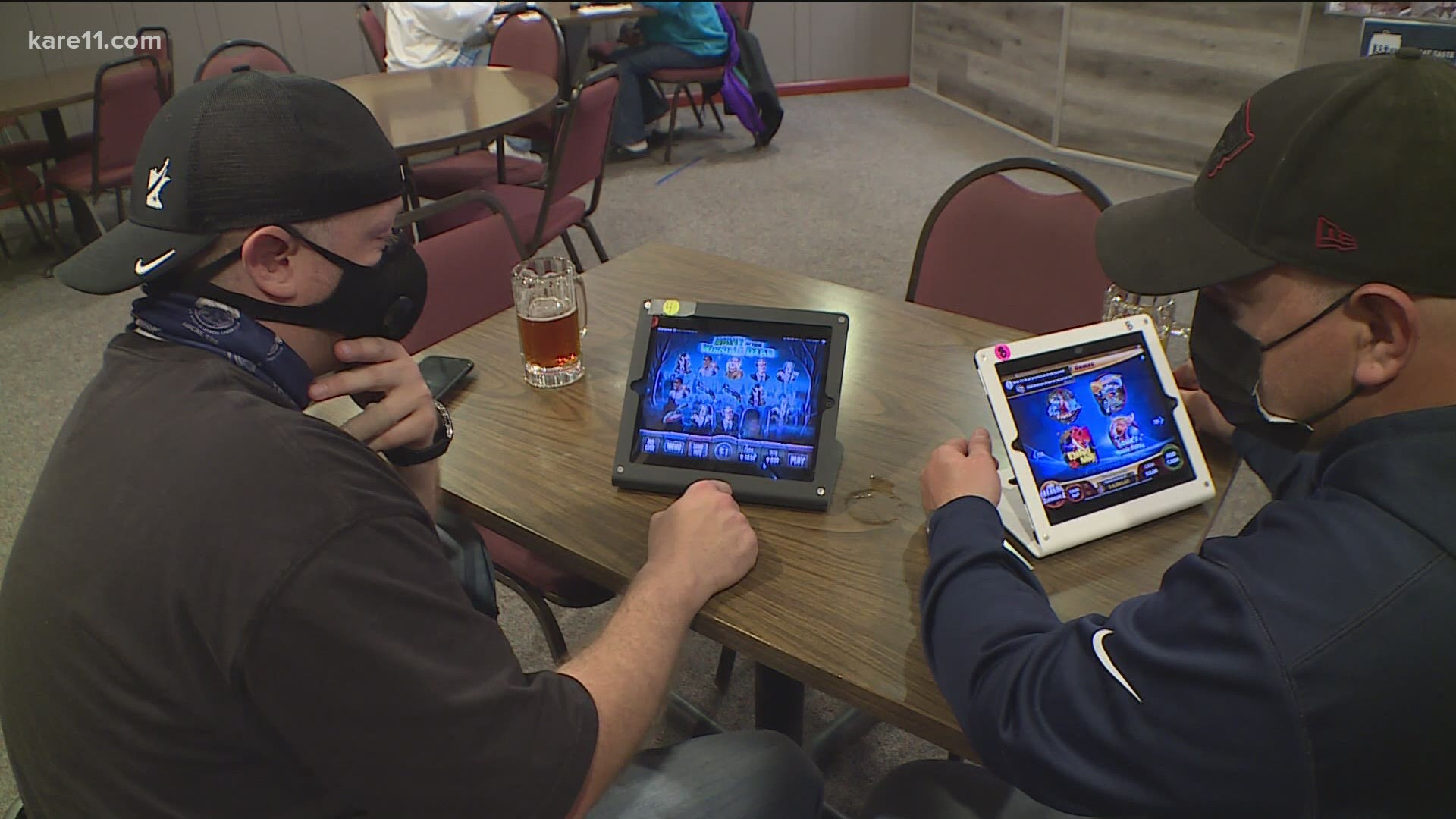ST PAUL, Minn. — Electronic pull-tabs have been a surprisingly successful stream of revenue for the state budget and Minnesota charities in recent years, but a group of lawmakers is warning that could all come to a screeching halt.
Republicans say more than 400 charities across the state and nearly 1,500 local bars and eateries that host those games will suffer a devastating hit if a proposed revamping of the e-tab games becomes law.
"Our locally owned bars and restaurants have had a really, really rough year. And taking away their electronic pull-tabs is like kicking them when they’re down," Sen. Karin Housely of Stillwater told reporters at a news conference Wednesday.
The House version of the Omnibus Commerce Bill calls for e-tab games to be redesigned by September of 2022 to make them more closely resemble paper pull-tabs. The lead author, DFL Rep. Zack Stevenson, asserts the current e-tab games too closely mimic the spinning of slot machines, which aren't allowed outside of tribal casinos.
"We greatly appreciate and value our bars and charities," Rep. Stevenson said Wednesday.
"They have done nothing wrong, and our legislation will still allow electronic gaming and the great work of our charities to continue while honoring the agreement we made with Minnesota’s tribal nations in 2012."
The Legislature legalized electronic pull-tabs in 2012 as a funding stream to help pay off the Vikings stadium debt. According to the Gambling Control Board, there were 1,490 locations offering electronic pull-tabs as of the summer of 2020, with total e-tab sales of $697 million.
Charities that operate the games pay taxes on their receipts and pay a percentage to the bars that host their electronic and paper pull-tab operations. The first $37 million collected by the state each year goes to the General Fund and everything above that mark goes to the US Bank Stadium reserve account.
The Minnesota Management and Budget department projected that FY 2021 will end with $80 million in that stadium account and that it will grow to $160 million by July of 2023.
What doesn't go to taxes and to host bars can be used for the charity's official purposes.
"Everything we get goes back to the charity -- the Hastings Veterans Home, Wounded Warriors, everything goes back to the community," Craig Kittelson, the gambling manager of American Legion Post 98 in St. Paul Park told reporters.
Rep. Keith Franke, who owns the Park Cafe and Franke's Corner Bar in the same town, said he felt blindsided by the proposed change because it didn't go through the normal committee hearing process.
"We are still hearing from people that they had no clue that this could potentially, actually happen, and come out of the omnibus bill and be voted on and become law without any discussion of the harm that it would cause statewide," Rep. Franke remarked.
He pointed to the fiscal note from the non-partisan House staff, which projected charitable fund would be cut $33 million per year, and local bars would lose $29 million annually, which could lead to $35 million loss in local wages.
The Minnesota Indian Gaming Association, which represents the tribal casinos in the state, favors the pull-tab revamp.
"The Minnesota Indian Gaming Association (MIGA) and its member tribes urge the Minnesota Legislature and the Minnesota Gambling Control Board to take clarifying actions necessary to ensure electronic pull-tab and bingo games comply with the intent of the 2012 authorizing statute."
The staff's fiscal note said none of the games currently being played on e-tab machines in Minnesota would be allowed under the wording the House bill. Rep. Franke said he doubts the vendors will be able to redesign games in such a short time span, assuming they're willing to do so.
But Rep. Stephenson said he's optimistic people will continue to play e-tabs even if the games are tamed down so the action looks less like slots.
"These changes, if enacted, would not go into effect until September 2022, leaving time for game developers to comply and for our businesses to emerge from COVID," Stephenson said.
“This is about the state honoring our agreement. The state has a very long history of not keeping its word when it comes to agreements made with tribal governments."
The e-tab provision did not make it into the Senate's version of the commerce bill but could become part of a joint House-Senate bill currently being hashed out by a conference committee at the Capitol.
GOP Sen. Mary Kiffmeyer told reporters she believes the Senate's conferees on that conference committee will block the e-tab provisions, but she felt it was important to warn the public about the possibility of it passing.

